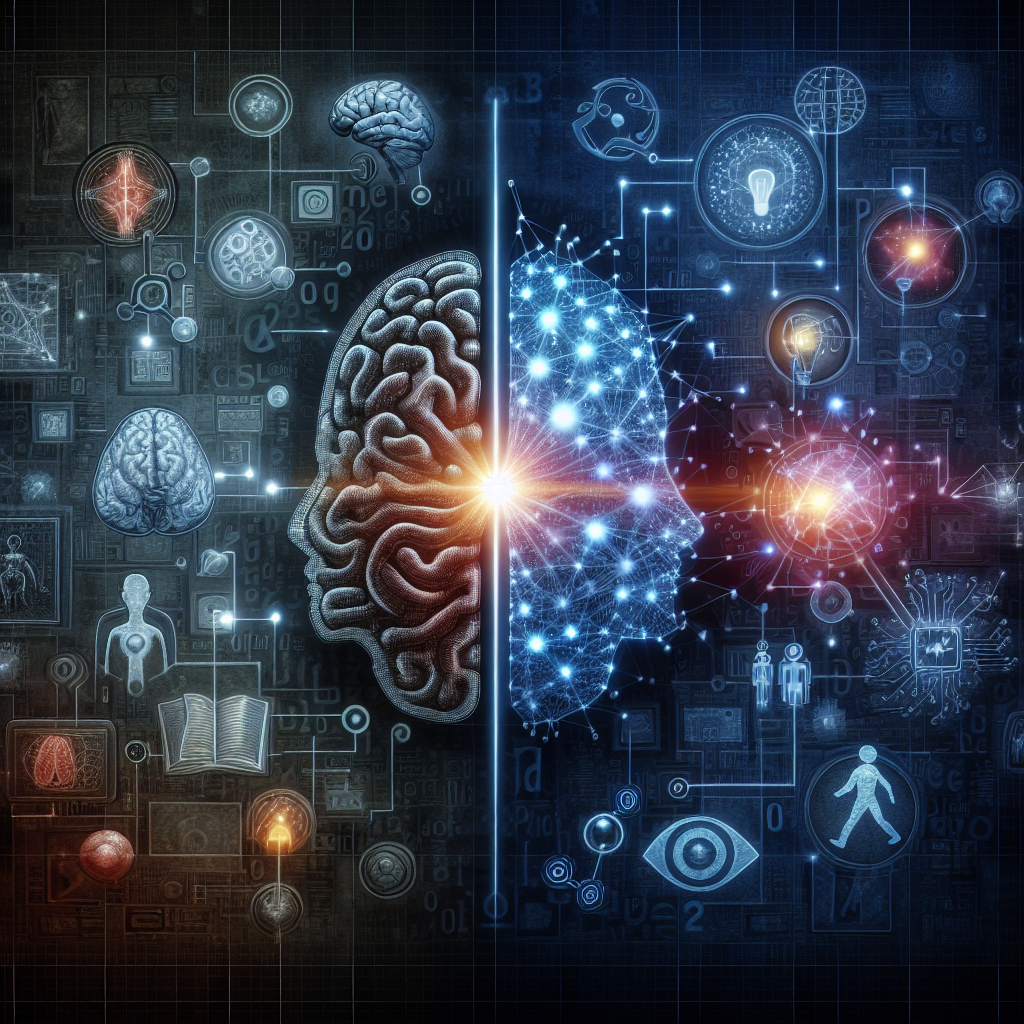Artificial General Intelligence (AGI) is a concept that has captured the imagination of scientists, engineers, and the general public alike. Often portrayed in popular culture as the ultimate form of intelligence, AGI is seen as a potential game-changer in fields ranging from healthcare to transportation to finance. But how does AGI differ from human intelligence, and what are the implications for society? In this article, we will explore the key differences between AGI and human intelligence, and examine what the rise of AGI could mean for society as a whole.
What is AGI?
AGI refers to a hypothetical form of artificial intelligence that possesses the ability to understand, learn, and apply knowledge in a way that is indistinguishable from human intelligence. Unlike narrow AI systems, which are designed to perform specific tasks such as image recognition or language translation, AGI is capable of generalizing its knowledge and applying it to a wide range of tasks and contexts.
The concept of AGI has long been a goal of researchers in the field of artificial intelligence. While significant progress has been made in developing AI systems that excel at specific tasks, such as playing chess or diagnosing diseases, creating a system that can match or surpass human intelligence in all areas remains a daunting challenge.
How does AGI differ from human intelligence?
While AGI and human intelligence share some similarities, they also have several key differences that set them apart. One of the main distinctions is in the way that AGI and human intelligence acquire knowledge and learn from experience.
Human intelligence is the product of millions of years of evolution, shaped by the interaction of genetic and environmental factors. As a result, human beings are born with a set of innate cognitive abilities that enable them to learn and adapt to a wide range of situations. Over time, humans acquire knowledge through a combination of observation, experience, and formal education, building on their existing understanding of the world.
In contrast, AGI is created by humans and programmed to perform specific tasks using algorithms and data. While AGI systems can be trained to recognize patterns and make decisions based on their training data, they lack the innate cognitive abilities and biological constraints that shape human intelligence. As a result, AGI systems may struggle to generalize their knowledge to new situations or learn from experience in the same way that humans do.
Another key difference between AGI and human intelligence is in the way that they process information. Human brains are highly parallelized, with billions of neurons working together to process sensory input, make decisions, and carry out complex tasks. By contrast, AGI systems typically rely on sequential processing and symbolic reasoning, which can limit their ability to handle complex, real-world tasks that require a high degree of parallelism.
What are the implications of AGI for society?
The rise of AGI has the potential to revolutionize society in ways that are both exciting and concerning. On the one hand, AGI has the potential to automate a wide range of tasks and processes, freeing up human workers to focus on more creative and strategic activities. AGI systems could also revolutionize fields such as healthcare, transportation, and finance, by analyzing vast amounts of data and making predictions with unprecedented accuracy.
On the other hand, the widespread adoption of AGI could also have profound social and economic implications. As AGI systems become more capable and versatile, they may begin to outperform humans in a wide range of tasks, leading to widespread job displacement and economic disruption. The rise of AGI could also raise ethical questions about the role of AI in society, such as issues of privacy, bias, and accountability.
FAQs:
Q: Will AGI ever surpass human intelligence?
A: While the development of AGI remains a challenging and uncertain prospect, many experts believe that it is possible for AGI to surpass human intelligence in the future. However, the timeline for achieving this milestone is highly uncertain, and there are many technical, ethical, and societal challenges that must be addressed before AGI becomes a reality.
Q: What are the risks of AGI?
A: The rise of AGI poses a number of risks and challenges for society, including the potential for widespread job displacement, economic disruption, and ethical concerns. AGI systems could also raise questions about the impact of AI on human society, such as issues of privacy, bias, and accountability.
Q: How can society prepare for the rise of AGI?
A: To prepare for the rise of AGI, society will need to invest in education and training programs that equip workers with the skills they need to thrive in an increasingly automated world. Governments and policymakers will also need to develop regulations and guidelines to ensure that AGI systems are developed and deployed in a safe and ethical manner.
In conclusion, the rise of AGI has the potential to transform society in ways that are both exciting and challenging. While AGI systems have the potential to revolutionize fields ranging from healthcare to transportation to finance, they also pose significant risks and challenges that must be addressed. By understanding the key differences between AGI and human intelligence, and by preparing for the implications of AGI on society, we can ensure that this powerful technology is used in a way that benefits all of humanity.

